How to Write a Lease Termination Letter Template
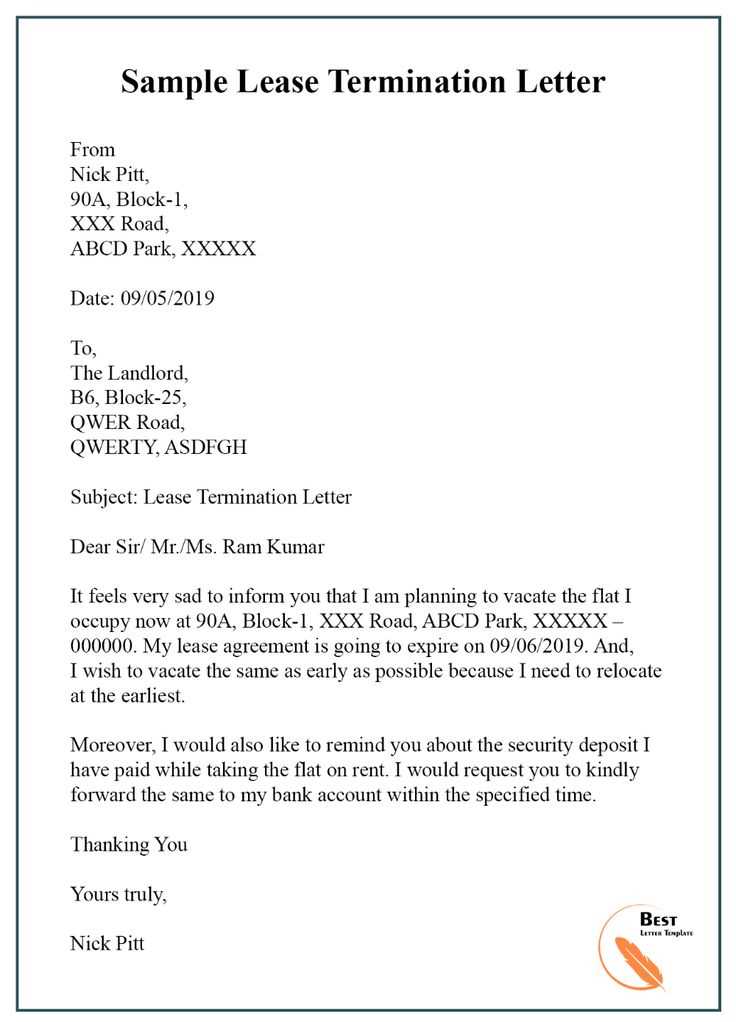
Ending a rental contract requires a clear and formal notification to ensure both parties understand the intent to terminate the arrangement. This document serves as a professional communication to inform the other party of the decision and provides details on important next steps. Crafting this notice correctly is essential to avoid misunderstandings and potential legal issues.
Essential Elements of the Notice
When drafting your message, it’s important to include key information that will help the recipient understand the situation fully. Here are the most vital components:
- Addressing Information: Include both your and the recipient’s names and addresses for identification purposes.
- Effective Date: Specify the exact date when the agreement will be concluded.
- Reason for Ending: State a brief reason for the decision, if applicable, though this is not always necessary.
- Next Steps: Indicate what will happen next, including any actions such as returning keys or conducting a final inspection.
Crafting a Polite and Professional Message
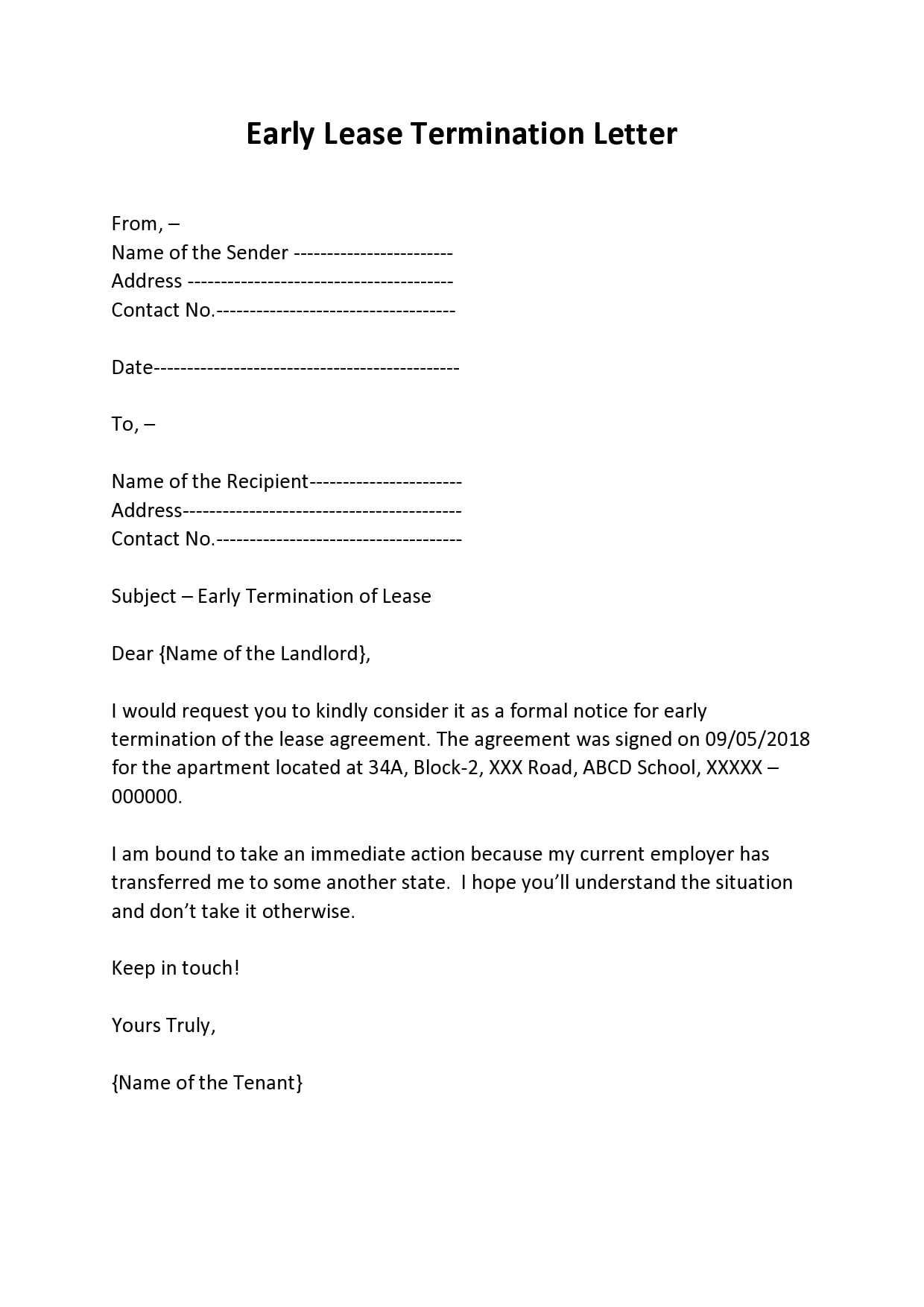
It’s crucial to maintain a respectful and courteous tone, even if you’re ending the contract due to issues or disagreements. This helps in preserving a positive relationship for any future references or potential disputes. Here’s how you can achieve a professional tone:
- Keep it clear and concise: Avoid unnecessary details or personal comments.
- Be firm yet polite: Convey your intention with clarity but also respect for the other party’s position.
- Avoid harsh language: Stay neutral and objective in your wording to maintain professionalism.
Legal Considerations
Make sure that your notification complies with local regulations regarding the end of a rental agreement. These rules may vary by location, so it’s important to verify the necessary steps and timelines. This ensures that you avoid any legal complications and that both parties are aware of their rights and responsibilities.
Understanding the Agreement Conclusion Process
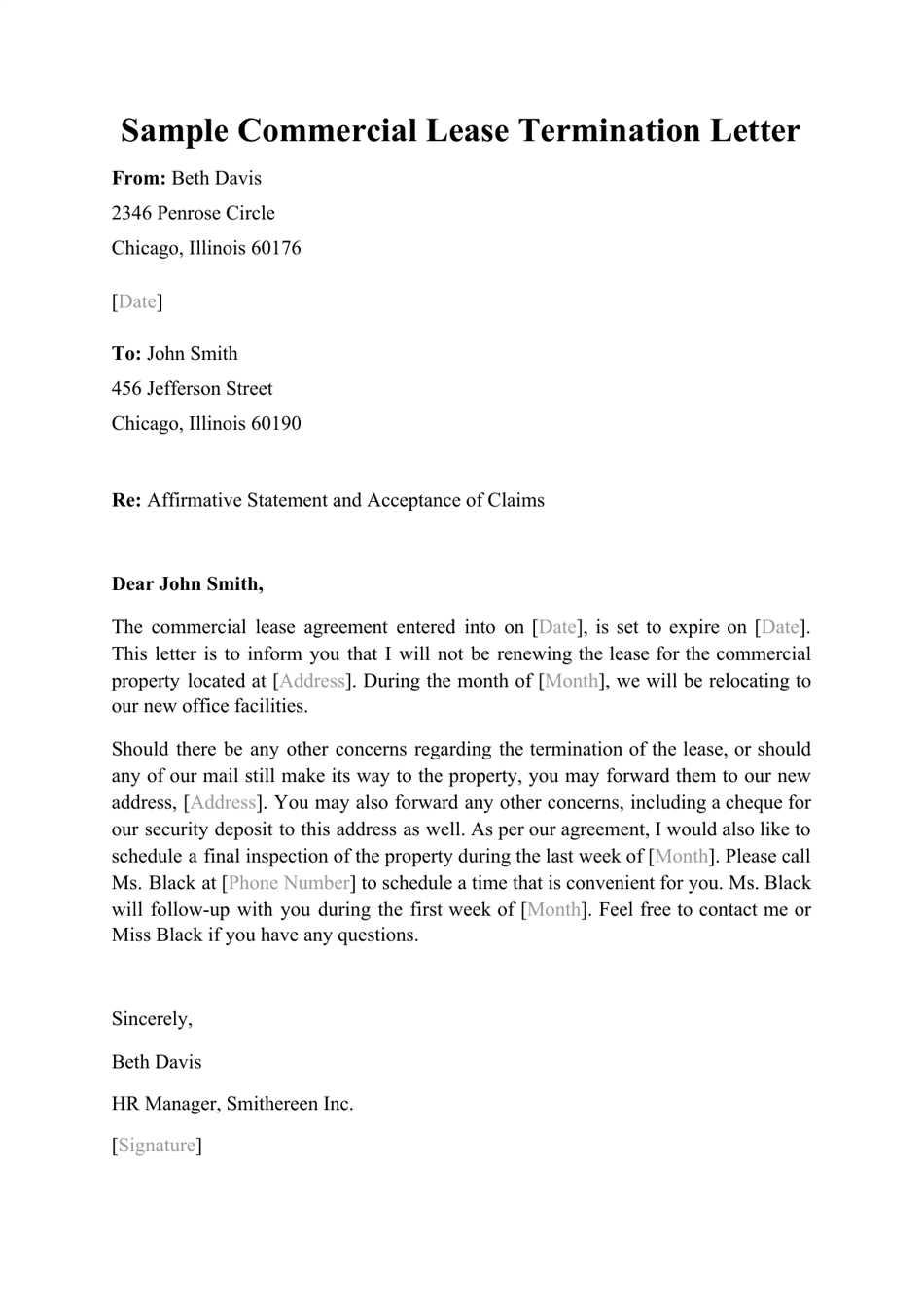
Concluding a rental arrangement involves following a set procedure to ensure both parties are informed and the transition is smooth. This process typically includes providing formal notification, stating intent to end the agreement, and taking the necessary actions before departure. Understanding the correct steps is crucial for avoiding complications and ensuring a legal and respectful conclusion.
When to Send a Formal Notification
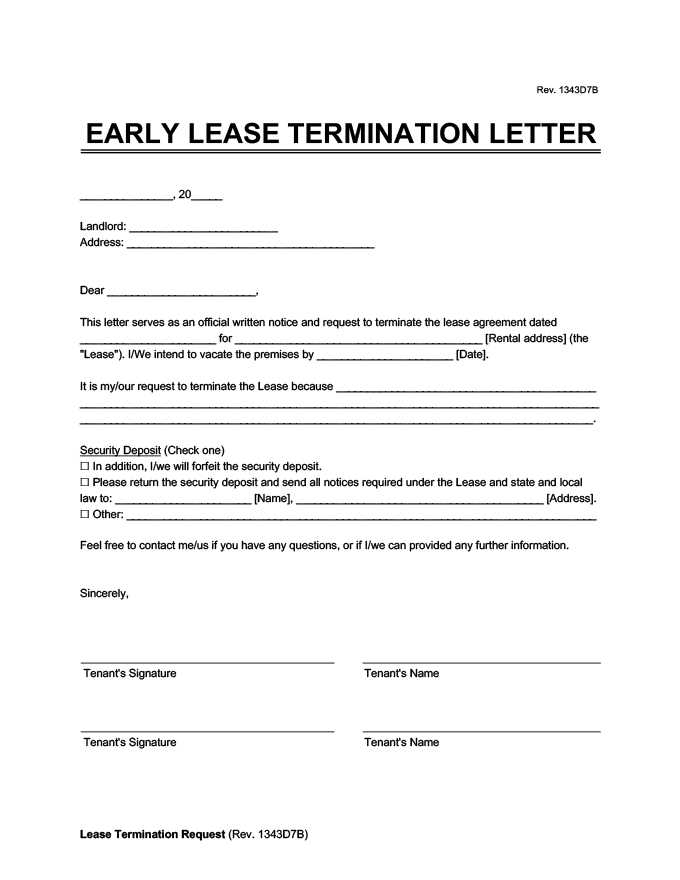
It’s important to notify the other party well in advance. Most agreements require a certain notice period, usually specified in the original contract. Sending your notice too early or too late could cause unnecessary issues or legal complications. Check the terms of the agreement to ensure that you comply with the required timeframe.
Key Components to Include
To make sure your message is effective and clear, there are a few important details to include:
- Recipient’s Information: Make sure the recipient’s name and address are correctly included for clarity.
- End Date: Clearly state the exact date when the arrangement will officially end.
- Reason (Optional): While optional, providing a brief explanation for the decision can help maintain goodwill.
- Next Steps: Indicate the actions to be taken, such as key return or final inspection arrangements.
Tips for Writing a Clear and Professional Notification
To ensure your message is well-received and effective, follow these best practices:
- Be concise and direct: State your intention clearly without unnecessary details.
- Stay polite and respectful: Even if the decision is due to disagreements, maintain a professional tone.
- Use proper language: Avoid slang or overly casual language to maintain a formal tone.
Common Mistakes to Avoid
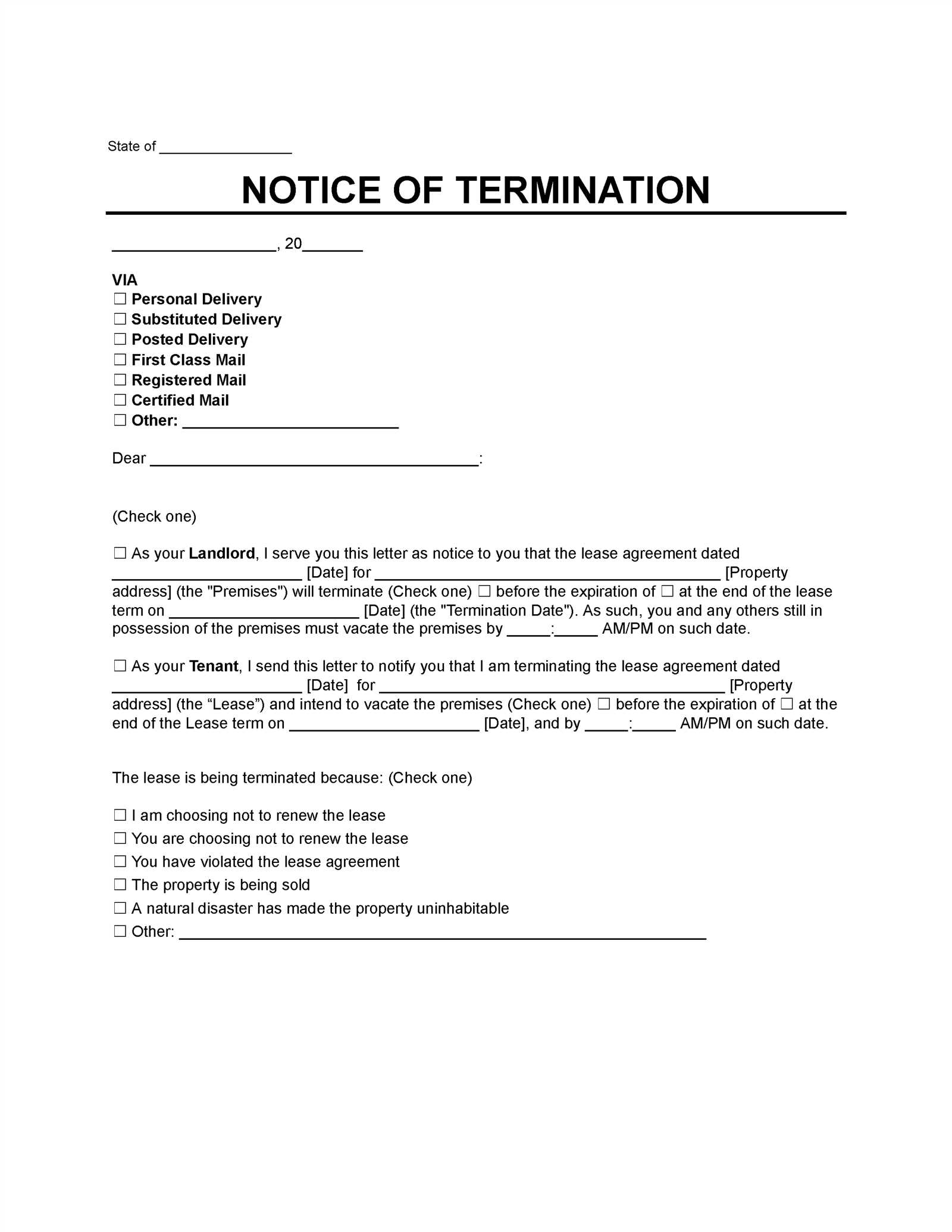
There are several common errors to watch out for when preparing your message:
- Missing details: Failing to provide important information like dates or the recipient’s details can cause confusion.
- Sending the notice too late: Always check the required notice period to avoid breaching the terms.
- Using inappropriate tone: Ensure that your language is respectful and professional to avoid misunderstandings.
Legal Considerations for Ending an Agreement
It’s essential to ensure that your actions comply with local laws and the terms of the contract. Different jurisdictions may have specific rules regarding notice periods, procedures, and expectations. Familiarizing yourself with these laws will help protect both your rights and the rights of the other party involved.
How to Submit Your Notification
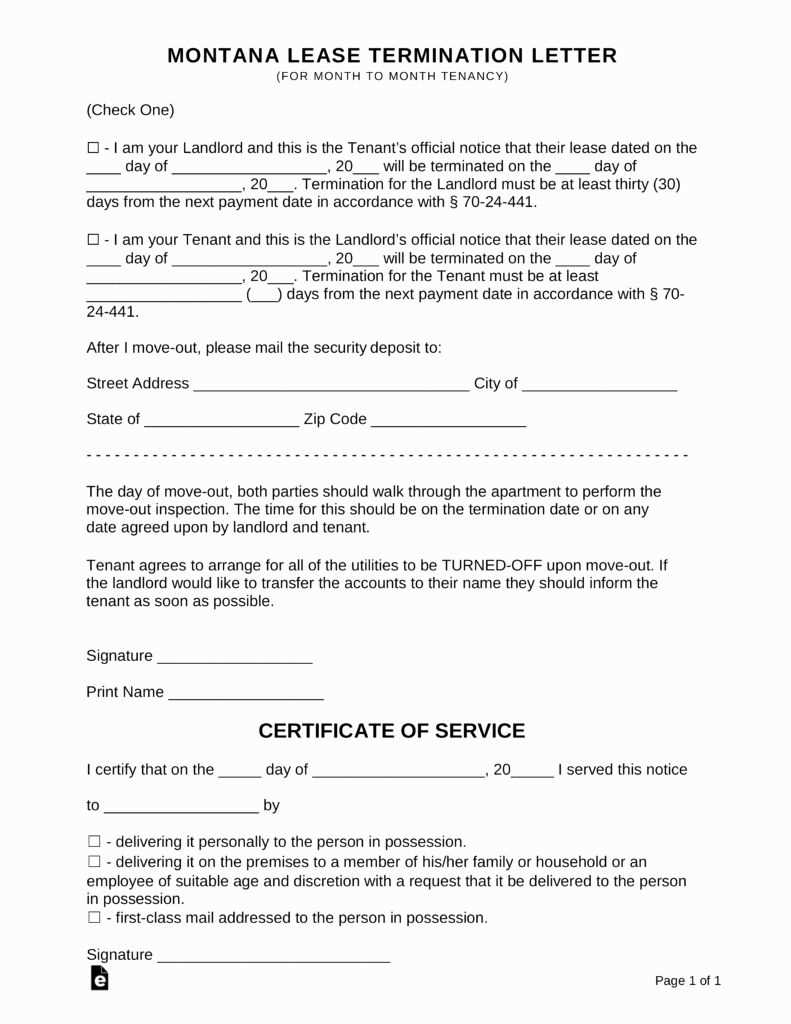
After preparing your message, it’s important to deliver it in the appropriate manner. Some agreements require the notice to be sent via a specific method, such as by registered mail or email. Be sure to keep proof of delivery, whether in the form of a receipt or email confirmation, to avoid any disputes later on.